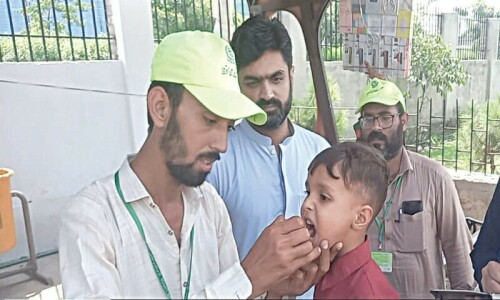HYDERABAD: Speakers at a session on Karoonjhar hills, part of one-day Lahooti Melo held in Rani Bagh here on Saturday, called for preserving the hills which were a cultural and religious heritage site and believed its destruction was in fact tantamount to ‘murder’ of people’s identity.
Allah Rakhio, a resident of Karoonjhar hills area in Nagarparkar, said at the session titled ‘Karoonjhar maro maaee baap’ (Karoonjhar is like my mother and father) that besides being a heritage site the hills were a source of livelihood for a population of 90,000.
He said that hills, which were a religious and cultural heritage site, also fed humans, animals and other living beings. People would never accept their destruction, he warned.
Saif Samejo, singer and the festival organiser, blamed policymakers for selling away the cultural beauty of Sindh and said Karoonjhar was a cultural and national heritage and youth were actively participating in the campaign for its preservation.
At another session on climate change titled Hik manhoon hik buto (one man, one plant) moderated by Samejo, Hyderabad mayor Kashif Shoro, Samejo and Sana Khawaja observed that climate change was the world’s gravest problem and stressed that every individual would have to plant a sapling to combat the harmful impact of climate change.
The mayor, who inaugurated the festival, announced that 100,000 saplings would be planted in Hyderabad city. Arrangements had been made for taking care of the saplings planted during tree plantation campaign, he said.
He said in answer to a question that Hyderabad had been neglected for 30 to 40 years and the issues confronting this city had just kept piling up.
Samejo pointed out that plants were a source of life and felling of just one tree killed many lives. These trees were a source of livelihood not only for human population but also for birds, he said.
Participants in the session on Karoonjhar also recorded their protest by holding aloft placards. Youths, who were residents of Karoonjhar and its adjacent areas, performed drum beating led by Nafees Kalyani from Taal Kari Drum Circle as a mark of protest against the cutting of Karoonjhar hills.
Published in Dawn, January 21st, 2024













































Dear visitor, the comments section is undergoing an overhaul and will return soon.